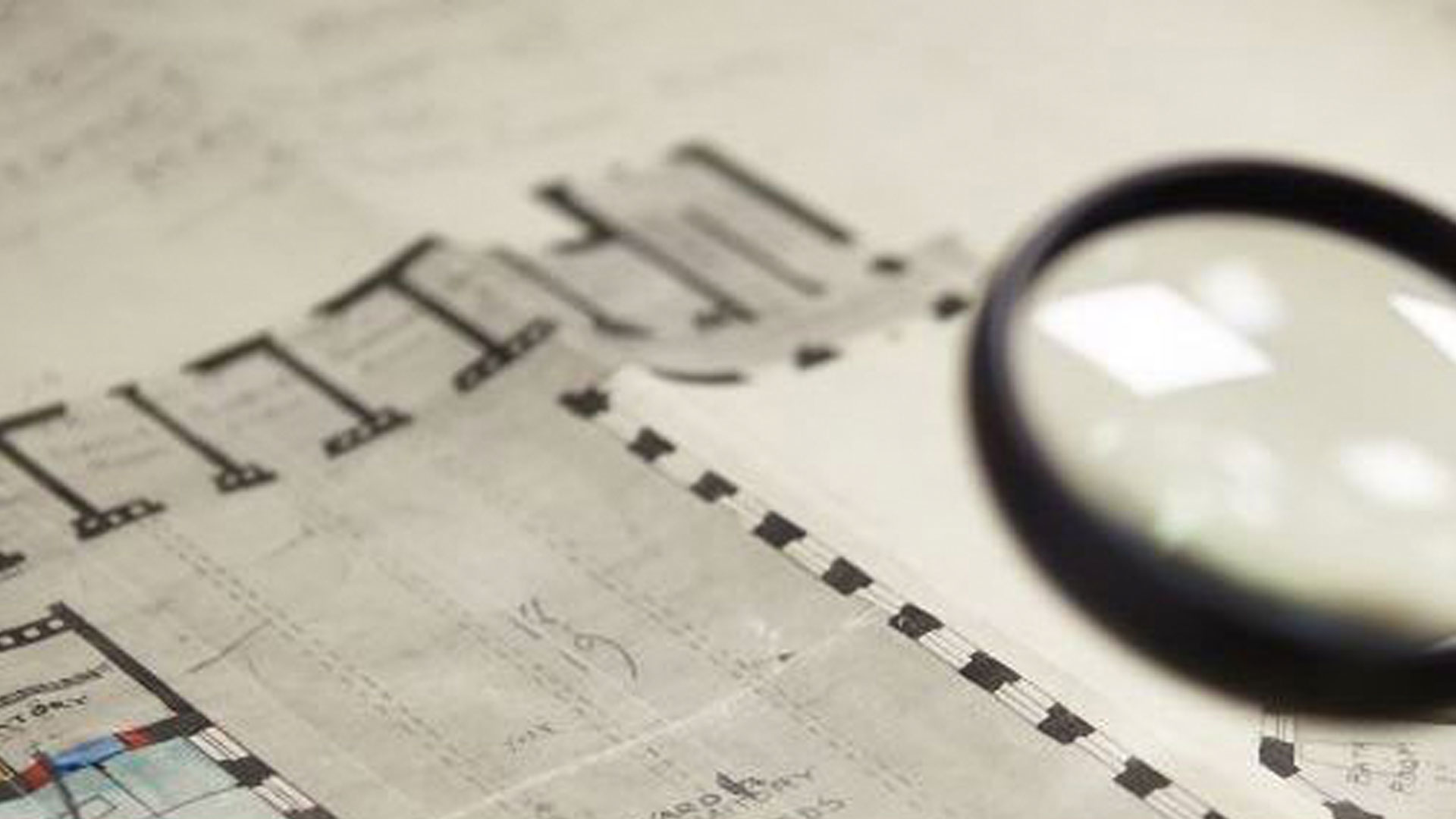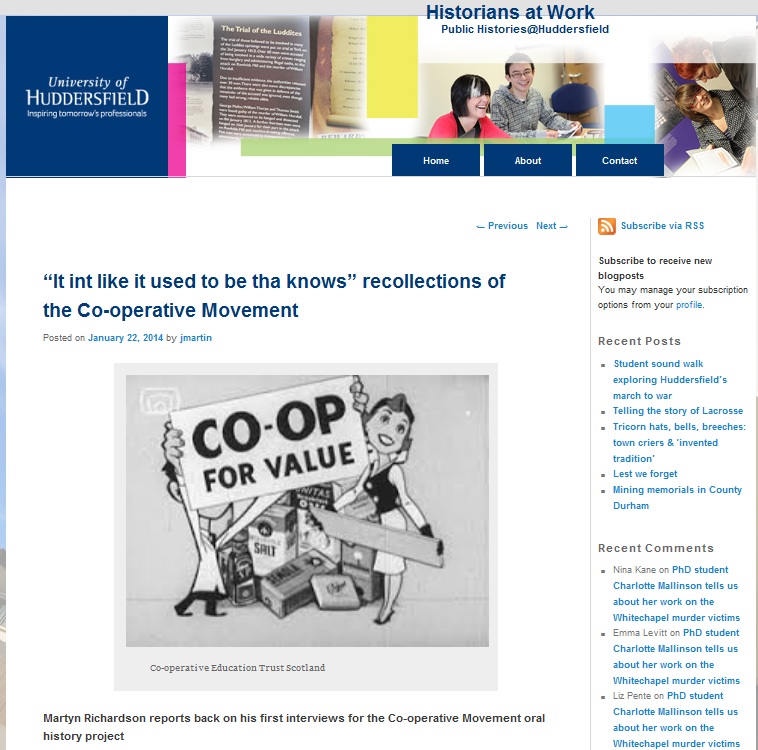
A few thoughts on Public History and the Media
Dr Daryl Leeworthy recently attended a History Lab Plus event on history, media and heritage at the University of Leicester (April 26 2014). The following appeared on first appeared his blog History on the Dole, but as its all about public history teaching at Huddersfield we are delighted to repost here
Bore da pawb! Good morning everyone. I suppose I should begin my remarks today by saying that my decision to pursue a career as a historian began with a TV show. Well, to be precise, two particular TV shows: Michael Wood’s In the Footsteps of Alexander the Great which came out way, way back in 1998 and Simon Schama’s A History of Britain, the first series of which was broadcast in September 2000. Watching them back now, I still get that twinge of excitement that I’m going to learn something even though I know the story rather better than my 12 or 14-year old self. My favourite episode of A History of Britain then, as now, was episode 4, entitled ‘Nations’. It tells the history of how England was taught ideas of its own nationhood by the Celtic peoples of these islands. More than any other episode it revealed just how and why the breakdown of the relationship between England, Scotland, Wales and Ireland was (indeed is) perhaps inevitable. Not for the last time a politician resident in London dangled the offer of better together in front of those living on the fringes, only to find it rejected by those same people. And that is I think the point of public history: it allows us to come to terms with our own past, our own heritage, in reflexive ways.
My role on the panel today is to discuss public history as someone who teaches it at university. In doing so I wanted to reflect on that question of reflexivity, on the role of public history, public historians, engaging with the media (be that the traditional print and broadcast media, or digital platforms) and heritage bodies, together giving voice to different ideas about the past, particularly the ideas developed by undergraduates. But first let me reflect on my own engagement with heritage and the media as a practitioner. My PhD was funded by the AHRC as a collaborative doctoral award, which meant that I worked closely with an external partner in the heritage industry, in this case the Royal Commission on the Ancient and Historical Monuments of Wales. Founded in August 1908, the Royal Commission is the national recording body for heritage in Wales. It surveys and interprets the man-made historic environment and promotes this in all ways possible – through books, through talks, through digital platforms, and through television documentaries. I was lucky, during the last year of my PhD, to take part in one of those documentaries, called Hidden Histories, and did a piece of work on Brynmawr lido, which was built in 1931 by voluntary labour. When we turned up for filming, the local welfare committee beamed with pride and the research I’d done in Switzerland helped fill in some of the gaps in their own knowledge. Such is the value of the clip that it’s still archived on the BBC website for anyone to watch: embarrassing to me, but prideful nonetheless. I was also lucky enough to work on the magnificent Britain From Above project, cataloguing priceless old glass negatives from the Aerofilms collection. Literally gave me a whole new perspective on inter-war Britain!
In the summer of 2012, I found myself out of work – the fate of many in our sector – and as a way of keeping my foot in the door and preserving my sanity, I started a blog. It’s called history on the dole, if any of you want to check it out. The first post marked the death of Eric Hobsbawm, who died that day in October 2012, and from there on I’ve written about all sorts of different things largely related to the history of South Wales. At times it has proved controversial, such as when a group of nationalist Poles attacked me for writing, innocently enough so I thought, “the concentration camps of Germany and Poland” as a geographical marker instead of the ‘Nazi Death Camps on Occupied Innocent Polish Soil” (their words). But most of the time it’s a fun experience that brings me into regular contact with people from around the world. It gets a regular turnover of visitors and has been seen by about 6,000 folks, typically from the English-speaking world but one person in each of Algeria, Estonia, Armenia and Bangladesh has taken the trouble to read something I’ve written on there. How many Welsh historians can say that!? And via twitter it’s brought my words into the hands of historians such as Steven Fielding of Nottingham, Bruce Berglund at Calvin College in the USA, Lucia Trimbur in New York, and a variety of scholars in Australia and New Zealand. But more significantly, it’s landed in the hands of ordinary people, who’ve written to me in response with their own stories. In other words, this kind of open-access, scholarly but readable digital platform allows our work to travel around the world in a way that pay-walled journals simply cannot compete with. The future of impact, of public history, is digital.
The power of blogs is something we take quite seriously at Huddersfield. We have a departmental blog – called Historians at Work – which showcases our students and the research that they do on modules called Hands on History and History in Practice. A few of the more active bloggers on the faculty – myself included – write there too. Blogs shed light, of course, but the work that they’re based on is quite remarkable and here I thought I’d offer you a brief clip of a piece of student work. It’s taken from a soundwalk on the pacifist and anti-war history of Huddersfield that was researched, written, recorded, and edited by four second year students. It’s one of the most accomplished pieces of undergraduate work I’ve ever encountered [if you’d like to hear the full walk please get in touch]. Over the last few months, the blog has featured subjects as diverse as the youthful vitality of Victor Grayson, the socialist MP for the Colne Valley who won there in 1906 by just 158 votes; the on-going work on the role of Huddersfield Technical College (the precursor to the University) during the Great War; our very own Professor Barry Doyle on why writing history books is difficultand Dr Janette Martin on why town criers are snazzy dressers; one doctoral student’s cross-century love affair with Charles Brandon; and a piece of Huddersfield Town’s three league victories in the mid-1920s. Temperance, Co-ops, the Miners’ Strike, Church Cricket, Jack the Ripper tourism complete the mix and that’s just since Christmas!

The range of themes is a testament to the reflexive character of a form of teaching the HEA – the Higher Education Academy – calls “students as researchers”. What some colleagues may potentially see this as is a way of getting students to do research for them, which will then form part of an article, go towards REF entry, and have little tangible benefit to the student, I don’t see it that way at all. I see it instead as a golden opportunity for us to listen to the interests of students and to help guide them. Much of this student-led research will take place in public in ways that many older colleagues haven’t even begun to yet consider. This work is the historical frontier. I have one student, for instance, who for his dissertation is tacking the generational relativity of Nazism. That is, engaging with quite profound questions of how the wider public at different points on the generational scale engage with and encounter the legacies of Nazi Germany. To help him, he has begun a crowdsourcing exercise in a variety of different circles that has yielded hits stretching from heavy metal music to computer games to novels, poems and board games. It’s a brilliant lens to see just how the past is represented out there in the real world. After all, many more play the latest Assassin’s Creed game, than read the latest release from Manchester University Press or Routledge. Another student has taken the more traditional route of oral history to give voice to the impact of the 1984-5 Miners’ Strike on the people of Barnsley. As a mature student entering university just at the point of turning 30, his project is one of internal discovery and allows him to apply all the skills of critical thinking learnt during his degree to learn more about his own family, his own community, and about himself. It’s a process that I went through doing a similar project on the Miners’ Strike myself. Few pieces of research have taught me – and my student, from the conversations I’ve had with him – quite as much about education, class, and the lingering memories of place.
So public history, then, whether in the form of doctoral research or undergraduate teaching through a heritage focus, engages with the world outside academe through different forms of media. I’ve focused here on DIY digital platforms because it’s vital we don’t rely just on traditional media sources, they privilege a particular form of history that many of my students stop believing in once they get past first year survey courses. We need to encourage, and to get to grips with, a different sort of media literacy which links history back to things that people under-30 take for granted. It’s not easy, but the benefits are enormous and they help to transform pedagogy too – as the soundwalks and the blogs illustrate. So my biggest piece of advice is this: use the digital realm to engage, to have impact, and to know that the possibilities are global. That’s how I have the honour of speaking at the first transnational lacrosse conference in Canada in the autumn, alongside representatives of the Iroquois and Mi’kmaq nations. Whatever the case may have once been, these days history is local and history is global. The media – particularly that kind of DIY media that we can control – helps ensure that our history is relevant. Diolch yn fawr iawn i chi gyd. Thank you.
Dr Daryl Leeworthy
History at Huddersfield uses research-led teaching and a commitment to public engagement to ensure that what we do is both useful to society and beneficial to the employability of our students. We see our students as researchers – partners in the development of knowledge with academic staff, often through co-production of knowledge with community partners. For more information see http://www.hud.ac.uk/courses/full-time/undergraduate/history-ba-hons/ and http://www.hud.ac.uk/research/history/
You can email us at historyadmissions@hud.ac.uk